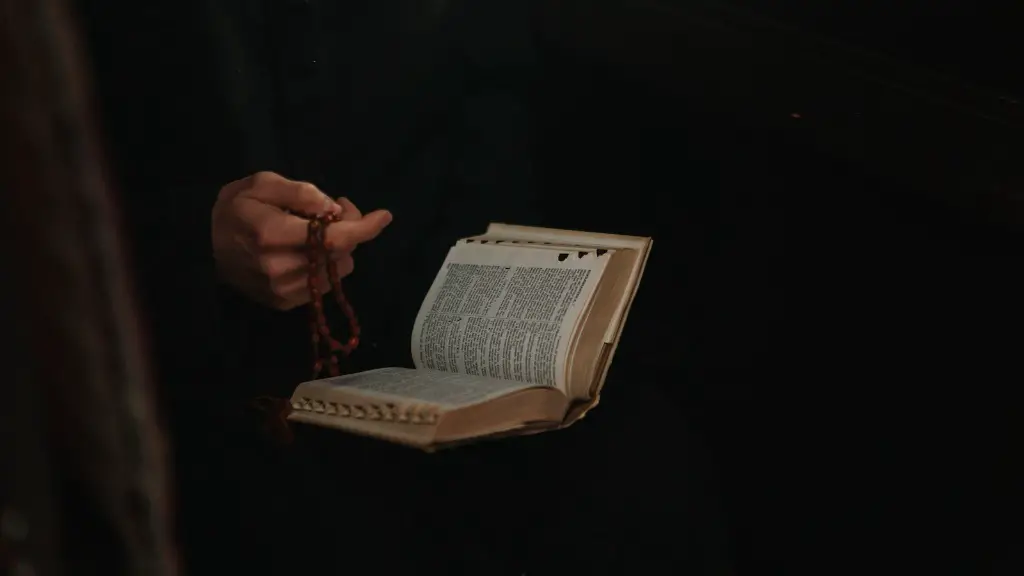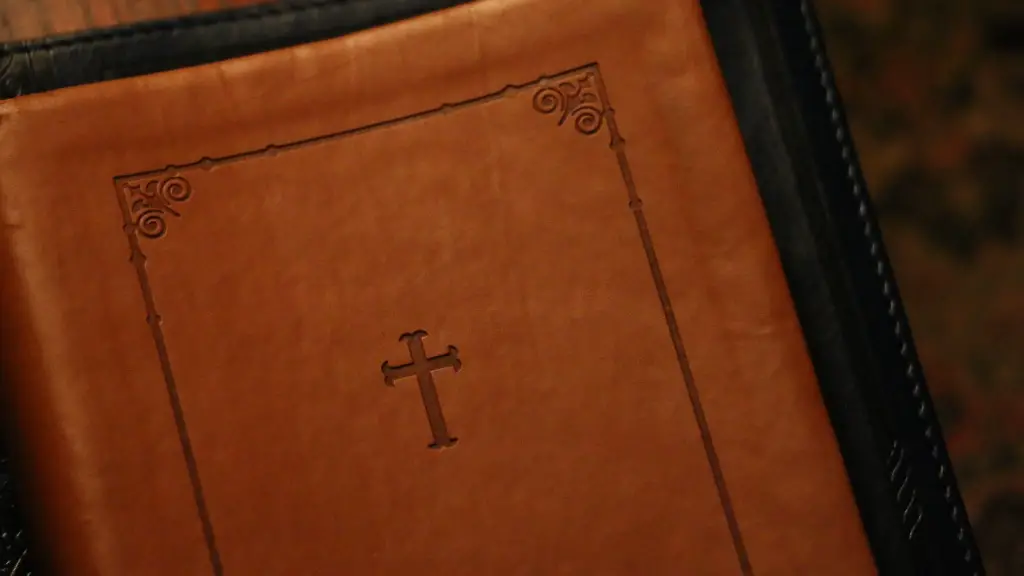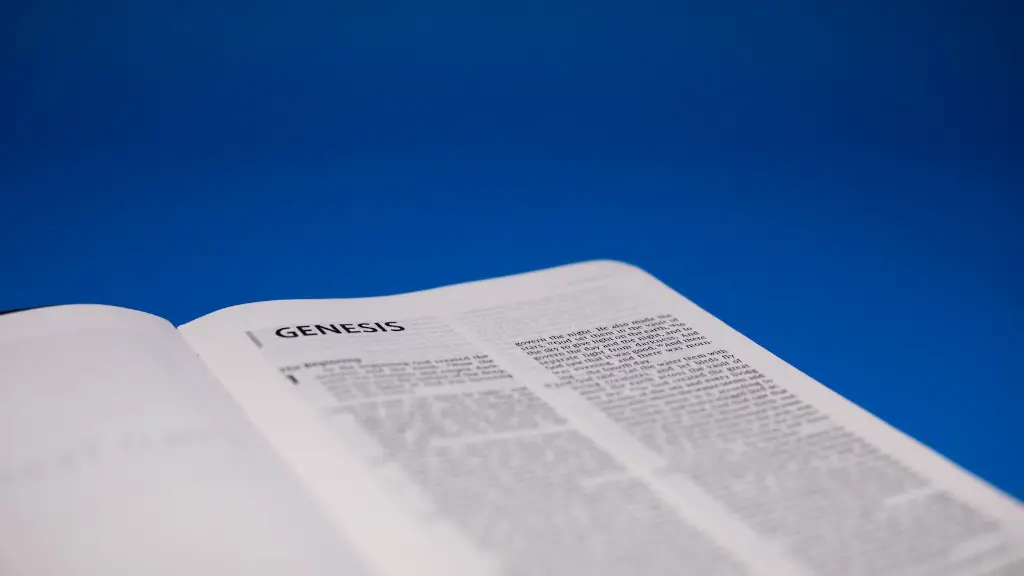Introduction to Witches in the Bible
The Bible has many references to witches, both in the Old and New Testaments. The word translated for “witch” is often used to refer to people who practice divination, sorcery and witchcraft. While there is no single consistent definition of a witch in the Bible, it is generally accepted that witches were seen as being people who were in league with the devil and used witchcraft to manipulate or harm other people. In the Old Testament, witches were condemned and deemed an abomination to God. These beliefs were deeply embedded in the culture of the time and thus are reflected in the Bible.
What Does The Bible Say About Witches?
The Bible condemns the practice of witchcraft and teaches that anyone who practices the dark arts should be strictly punished. In Deuteronomy 18:9-12, God specifically speaks against “anyone who practices magic arts, interprets omens, engages in witchcraft, or casts spells, or who is a medium or spiritist or who consults the dead.” In the Old Testament, witches were viewed as lawbreakers and their very presence in the Bible was seen as a threat to orderly society. Acts of sorcery and witchcraft were considered sins against God and therefore punishable by death.
In the New Testament, there are multiple references to witches, but a different perspective is drawn. Jesus casts out demons and works miracles, which in essence could be seen as using magical powers. He’s accused of doing so by the Pharisees and is seemingly unbothered by their attempts to discredit him. He’s also compassionate to those he meets who may have dabbled in magical powers.
In the book of Acts, Paul and Barnabas engage in a magical confrontation with a sorcerer and come out victorious. This is seen as a testament to the power of God, and a statement that spiritual powers cannot stand up against the power of the Lord. Overall, the New Testament views witchcraft and sorcery as illegal but with a bit more of a compassionate attitude than the Old Testament.
The Bible and Witchcraft Today
Today, the Bible’s teachings on witchcraft have become more nuanced and refined. While witchcraft is still widely viewed as something that should not be practiced and an act of sin, the church has come to have a more compassionate view of people who do practice witchcraft.
It is widely accepted within the modern church that there are distinctions between good and bad witches. The Witches’ Bible, a text composed by British witch activist Doreen Valiente, states that “witches do no harm.” This sentiment is echoed in many modern Christian teachings, and the majority of churches and denominations accept witchcraft as a valid spiritual practice.
The Persecution of Witches Throughout History
The bible’s condemnation of witches has caused many to suffer from terrible persecution throughout history. In the 17th and 18th centuries, the European witch trials caused thousands of people to be put to death for practicing witchcraft. This paranoia and fear eventually spread to North America, where many states had laws specifically against witches and witchcraft. Those accused of being a witch was often viewed as societal outcasts or out of touch with the rest of the population.
These fears of witchcraft eventually died off, but the stigma of the witch survived. This stereotype still exists to this day, and witches are often seen as odd or strange people who don’t quite fit in with the rest of society.
Modern Witchcraft and Wicca
Today, witchcraft is mostly practiced by members of the Wiccan faith, who view it as a celebration of nature and the divine feminine. Wicca is a neo-pagan nature-based religion that has roots in folk magic, folklore, and ancient spiritual beliefs. Its followers believe that there is divine power in all living things, and that it should be respected and honored.
Wicca uses magic and natural forces, such as herbs and stones, to perform rituals and spells that are meant to bring about positive change. As Wiccans don’t believe in a devil or a single supreme being, the practice of witchcraft does not stem from evil or dark forces. Wicca can be seen as a more gentle, balanced approach to witchcraft, which differs from the fear and suspicion that surrounded it in biblical times.
The Ethics of Witchcraft and The Bible
Though the Bible holds a strict view of witchcraft, modern Wiccans respect the ethical boundaries of their tradition. In Wicca, there is a Threefold Law which states that any action one takes will return to them threefold. This Law is based on the Wiccan Rede, a code of conduct which teaches practitioners to respect the balance of nature, use their power responsibly, and do no harm. The belief in doing no harm is also echoed in Christianity’s Golden Rule, which states that one should do unto others as they would have done unto themselves.
The ethical boundaries of Wicca and Christianity may contradict one another, however in practice their similarities can’t be ignored. Each faith has its own views on the use of magic and witchcraft, and each should be respected and held in high regard. Whether one chooses to believe in the teachings of the Bible or the teachings of Wicca, the use of witchcraft should always be done responsibly and with respect for the power of nature.
The Psychological Effects of Witchcraft
The power of witchcraft and the fear around it has had a profound impact on psychological well-being. While there are many books and articles written on the scientific basis of witchcraft, the power of belief cannot be denied. In biblical times, those who were accused of witchcraft were often seen as agents of evil, with widespread paranoia and suspicion. This view has instilled in many a deep-seated dread of witches and those accused of being one.
The fear of witches took on a life of its own and was further perpetuated by books and movies on the topic. While this fear is mostly unfounded and irrational, it still exists in certain pockets of society. This fear is also seen in other cultural beliefs with varying degrees of intensity.
The Need for Education on Witchcraft
It’s important to educate people about the reality of witchcraft and dispel any myths or misunderstandings. People should be taught about the power of belief and the positive effects of intentional spell-casting and the use of herbs and stones. Educating people on the ethical boundaries of magic and natural power could help us to understand the way we use it and how to use it responsibly.
As the world changes, so do our beliefs about witchcraft and the role it plays in our lives. It’s important to remember that we should always respect one another’s beliefs and opinions, no matter how different they may be. The Bible’s teachings on the matter are important, but it’s equally as important to respect and explore the human experience through education.
The Intersection of Religion, Witchcraft and Science
Today, we are also seeing an intersection between religion, witchcraft and science. Some of the ideas and rituals of witchcraft incorporate scientific principles, such as the use of herbs, stones and crystals in spell-casting and potions. These principles can be used to create positive change, such as healing and protection.
At the same time, the idea of witchcraft can also open up dialogue on faith and spirituality. Belief in a higher power and the use of intentional spell-casting can provide comfort and guidance during difficult times. Whether one follows the Bible or modern Wicca, the spiritual journey and quest for understanding can provide focus and illumination in our daily lives.
The Use of Witchcraft in Performance and Creative Endeavors
Witchcraft can also be seen in the form of entertainment and expression. Musicals such as Wicked, Pippin and Buffy the Vampire Slayer blend elements of witchcraft with humor and satire. Visual art, photography, theater and literature often incorporate themes of magic, dark arts and witchcraft as a point of inspiration and exploration.
Creative endeavors such as these take what can be seen as a dark and fearful topic and open it up for discussion. They can provide a lighthearted look at the use of witchcraft, allowing us to explore the idea of the supernatural in a safe and entertaining way.
The Witch Archetype and The Reawakening of Intuition
The witch archetype has taken on a life of its own. The idea of the witch as an empowered figure has become increasingly popular in recent years, as evidenced by the rise in witch-related products and services being offered. Women are using the witch archetype to explore and express their power and intuition. This archetype can be seen as a reawakening of the divine feminine, and a reclaiming of the spiritual power that so many have sought after.
The image of the witch has gone through many transformations throughout the centuries and today is a symbol of strength and power. The idea of witches in the Bible is a reminder that there is a power beyond the physical realm and our own understanding, and that it should be respected and honored.


